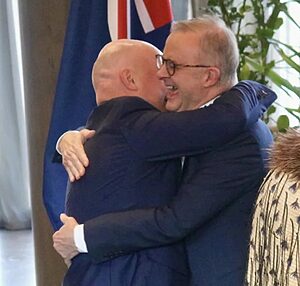Summarised by Centrist
Professor Elizabeth Rata, in her article, “Two treaties of Waitangi: The Articles Treaty and the Principles Treaty” discusses how the latter is an invention from 1986 when the principles were initially included in legislation.
It differs from the 1840 Articles Treaty, which is defined by the three articles in it. The Principles Treaty is based on so-called core principles of partnership, active protection, and redress – words that do not appear in the Articles themselves.
The authorisation by MPs of erroneous and ill defined “Principles” being put into legislation has paved the way for tribal corporations to demand political power be entrenched “first as co-governance, then as tribal sovereignty”.
A variety of strategies have been employed to consolidate the Principles into legislation.The most effective of which, says Rata, is rooted in the “activist judges, tribalist law professors, and lawyer-politicians” who “have claimed the authority to interpret the truth from the Treaty runes”.
Ultimately, the Principles should be removed from legislation altogether, argues Rata. The legislators did not know what they meant and therefore they lack democratic legitimacy.



















